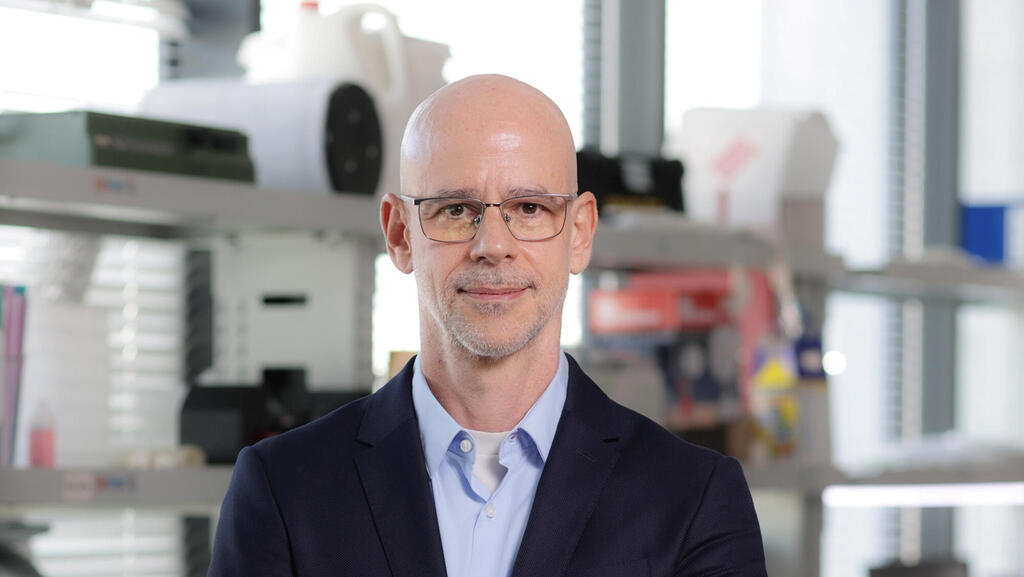
Dror Bin's battle cry: Why Israeli high-tech needs diversity and investment now
The Israel Innovation Authority's CEO warns that the potential of human capital in high-tech is quickly running out because Israel is not developing it - in the last decade, less than 10,000 Arab and ultra-Orthodox women entered the world of high-tech. Regarding AI, he says, “Israel is a leader in artificial intelligence. The claim that we missed the boat is nonsense.”
"We are approaching the glass ceiling of human capital in high-tech. We will soon exhaust all those employed in the central region and we will find that we have nowhere from which to take more workers," says Dror Bin, CEO of the Israel Innovation Authority in an interview with Calcalist. "We must see more women, ultra-Orthodox and Arabs in the high-tech sector. Unfortunately, this barely happened in the last decade, the state failed to integrate them. The number of ultra-Orthodox men in the high-tech industry was 2,500 in 2014, and at the end of 2023 only 4,000 ultra-Orthodox men are employed in the industry. The number of Arab men in the industry in 2014 was 3,000 and at the end of 2023 only 6,000. The only consolation we see is among ultra-Orthodox women, where there was an increase from 2,000 to 7,000.
"Another bright spot is that the number of women working in R&D positions in high-tech companies increased from 30% in 2014 to 40% today. We know that training processes take time and no step in the chain should be skipped. There is a public discussion about ultra-Orthodox and core studies, and it is very much related to the success of Israeli high-tech in 10 years. Without English and math, you can't be in high-tech."
Dror Bin has headed the Israel Innovation Authority since 2021, the year of the big bubble in Israeli high-tech, and from the big bubble came the collapse in the years that followed, the judicial reform and the war that broke out on October 7.
What has changed in the Authority and Israeli high-tech since the outbreak of the war?
"We woke up on the eighth of October to a completely new reality. Israeli high-tech is in a sharp slowdown from 2021, a sharp drop in investments. There was no political stability in Israel throughout 2023. Then the war broke out and we realized that we had to rethink what we were doing. We did a survey with the companies to understand their situation and we discovered that 50% of the companies in the early stages only have enough money to pay salaries for five months. The most important asset for the state are the young companies, half of which were in existential danger.
"On the first of November, we opened the fast route. We allocated NIS 400 million to invest in young companies with money. We finished the fund's investments and the last investment committee was last March. There were 655 applications. We were looking for a company with technological and business assets or companies that have really started to sell. The investment committees discussed 655 requests in three months - sometimes we held three discussions a week.
"The total budget request - our funding and the matching capital - was 2.8 billion shekels. Of this, the requests of 247 companies were approved, 38% of the requests, with a total budget of one billion and a quarter shekels, of which 400 million came from the Authority and the rest was private supplementary funding. The average grant rate was 40% of what they asked for, more than half of the companies have already managed to obtain additional funding and received the money. I believe that not all of them will be able to raise and then use the money for other needs. We requested additional funding because it is important for us to have enough money, and it is also a signal of a private investor who believes in the company and will support it in the future. We did not want to fund companies that should not survive.
"It was a first-aid move, but Israeli high-tech is more than early-stage companies. We set out with two much more strategic moves. The first is an initiative fund: a call for proposals should be issued in April. The fund will achieve two goals: We know that when a country's risk premium rises, venture capital investors tend to invest less in the early stages. We don't want to enter a crisis, so we are establishing the Initiative Fund, so that there will be enough money for the young companies until 2026.
"The second goal is to create a strong connection between the Israeli institutions and the Israeli venture capital funds. Institutional investors tend to invest in the world in places where the state is strong. In Israel, the institutions invest less in high-tech, which is the strength of the local economy. For every dollar of an institutional investor Israel will add 30 cents. In a few years, if the institution is profitable, it will pay us back with interest, and if it has lost money, we will absorb a part of the loss. We feel that there is interest from both the funds and the institutions. We have talked to many bodies and people and they all want to see it. We would like an institutional commitment of one billion dollars and we will provide a magnitude of $230 million - two thirds this year, and another third next year. In the recently passed budget, the Innovation Authority's budget increased by one billion shekels to approximately three billion shekels, and part of this will go towards the fast route, both the initiative fund and the start-up fund.
"In 2023, Israeli high-tech was responsible for 20% of GDP and 50% of exports, and 10,000 new workers were added to the high-tech industry, even though it was a year of political crisis and war. No other sector has grown so much this year. On the one hand, it is an engine of growth and is still durable, but the Israeli economy is so connected to high-tech that we must make sure that these assets are not lost.
"Israel is not alone today. In the past there was only Israel and Silicon Valley, but today there are many innovation centers. There is no country that does not invest in the field. There is enormous competition. The ecosystem competes for venture capital. Money flows between countries, and entrepreneurs shop around for the most suitable place to register a company. There are 9,000 active companies in Israeli high-tech - we are third in the world in high-tech companies per capita. The role of the state is to reduce risk for investors in dangerous stages, building educational infrastructure and academic education and creating a favorable taxation environment, which is critical, especially for multinational companies. There is a lot that the state must do so that the advantage is maintained."
Related articles:
What do you think about registering companies away from Israel?
"Last year they talked about 50%-80% of companies being registered in the United States. We checked representative bodies and today they are talking about 50% of the companies being registered in the United States. If you are an Israeli entrepreneur who registers in the United States, it is not rational. The taxation envelope for a start-up company in Israel is better.
"In order to receive a grant from us, you must be an Israeli company. An Israeli subsidiary can receive a grant, but most of its activity must be in Israel. It is important to us where the intellectual property development activity is based, because this is where taxes are paid. The new funds will emphasize this so that the company will pay tax here and most of their employees will be here. An investor in an Israeli company will see a tax burden of 30% here, while in the United States there is a tax burden of 50%, but if it operates here it is better to register in Israel."
Did Israel miss the artificial intelligence train?
"Israel is a leader in artificial intelligence. The claim that we missed it is nonsense. There are international benchmarks. According to one of the most respected, Israel is in seventh place in the world, and in relation to the size of the population, second in the world. Israel excels in the application of AI in high-tech companies. Today in Israel there are over 2,000 companies with strong artificial intelligence capabilities, proven and deep capabilities, and here Israel excels.
"It is less outstanding on the side of national infrastructure - regulation and government policy, so three years ago a national government program for artificial intelligence was established. It has so far been budgeted for a billion shekels and it invests in infrastructure. We invest in R&D laboratories for testing models, testing chips, developing human capital and promoting the opening of a database that can be used to train models - from health system organizations, for example. We also invest in language models in Hebrew and Arabic. The program is active, and if more budget is needed, I assume we will get it. Israel excels there and there is no need to launch an artificial intelligence framework (as recently announced by the Prime Minister) as there is an excellent plan."
